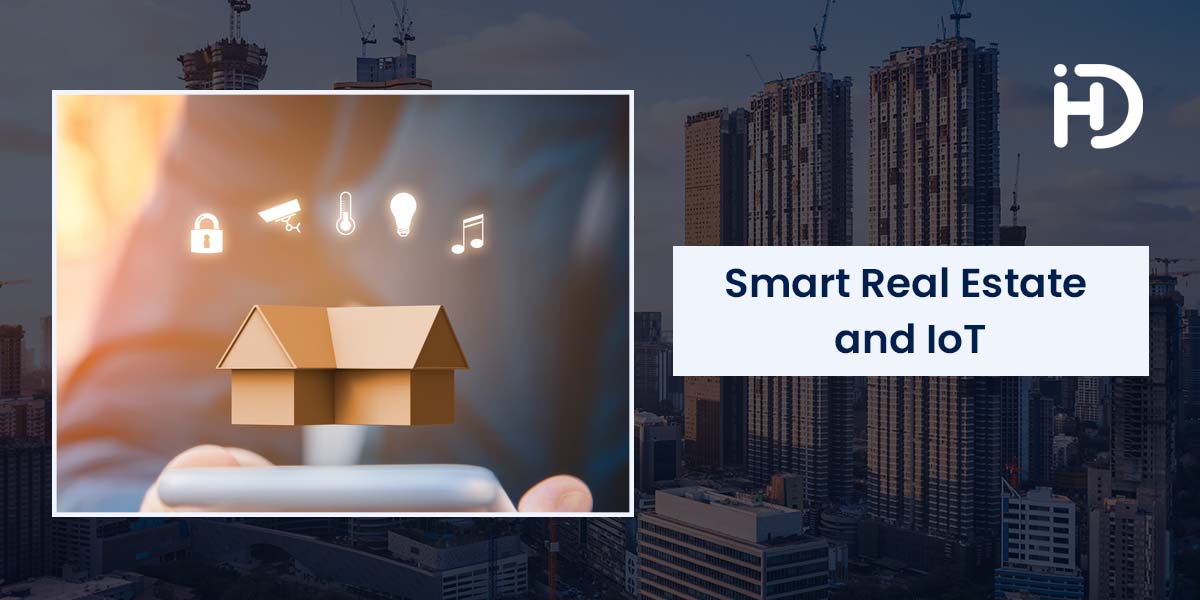"Internet of Things" is what the abbreviation "IoT" means. It refers to the idea of common, everyday objects being linked to the internet and having the capacity to communicate with one another. As a result, a network of interconnected smart devices is created.
The Internet of Things aims to accelerate and simplify processes like automation and connectivity. In this way, the Internet of Things can reduce overall operational costs while assisting both individuals and businesses in saving time and money.
In contrast to residential property, commercial real estate refers to property used for business purposes or as a workspace. This area is home to a wide range of commercial buildings, from modest thrift shops to sizable shopping malls.
Since the
real estate industry depends so heavily on cement, concrete, and steel, IoT initially seems unimportant for this industry. However, it becomes clear from the further investigation that IoT can have a significant impact on commercial real estate.
However, the Internet of Things (IoT) is fundamentally altering how businesses run. IoT will soon become even more important to businesses as changing customer preferences drive demand and transactions. For their organizations to remain competitive, these changes must be able to be adapted.
Now that you clearly understand what the Internet of Things is, allow me to explain how it may impact the real estate sector. How did commercial business and technology develop?
IoT and Real Estate
Smart real estate is on the rise and advancing rapidly due to disruptive technology. In the past, data collection was done manually which was not as effective. However, now with sensors and gadgets, we are able to collect data much more efficiently. This allows commercial real estate companies to offer smart solutions, such as controlling various systems in homes, workplaces, and public areas, to their clients.
The decision-making power has shifted from baby boomers to millennials, resulting in a change in customer preferences in the real estate industry. Gen Y, influenced by a rent-by-choice culture, is looking for real estate investment opportunities at an early stage and pushing for technological advancement in this area.
IoT is now present in people's homes, workplaces, shopping malls, and parking lots, among other places. It has the ability to deliver insights that will improve our lives by capturing data from sensors in the real estate industry and combining it with the power of analytics.
How Can We Improve Real Estate With IoT?
1) Lighting Efficiency
Another advantage of IoT is that it conserves energy by only turning on lights where people are present, as opposed to across an entire floor or building. This is only the beginning of what IoT can do in commercial real estate, but it demonstrates the potential relevance and usefulness of the technology.
2) Bottleneck Elimination
Good commercial real estate management can help businesses reduce traffic and make their facilities run more smoothly. Large retail malls are using indoor navigation systems to identify bottlenecks and modify floor layouts to remove obstacles and make wayfinding simpler.
Customers are pleased as a result, and they have more time to shop and spend in stores. This makes shopping mall owners happy since their businesses earn more profits.
3) Enhanced Employee Management System
The
Internet of Things can absolutely help to improve the employee experience in commercial real estate. This is done by making a few key changes, such as increasing the air quality, adding more natural warmth, and increasing the amount of natural lighting. By making these simple changes, you can create a workspace that is more comfortable and inviting for employees.
4) Higher Resell Value
Installing smart appliances and home devices can be a great way to increase the value of your property when you're ready to sell it. Not only will it increase the property's worth, but smart technology will also make it more appealing to younger clients, making it simpler to sell.
The future has immense possibilities for smart home technology and the real estate market.
Home automation has been a significant game-changer for the real estate industry, with smart home solutions becoming increasingly popular among buyers. This trend is expected to continue to grow in the coming years, as more and more buyers are looking for houses that offer this type of technology. One of the best ways to appeal to potential buyers is to incorporate smart home technology into your listing.
Technologies That Will Make Real Estate Grow
-
Cutting-edge security and flexibility
-
Real-estate-as-a-service provides a great user experience
-
Iris recognition cameras with cutting-edge security
Conclusion
The impact of IoT on the real estate sector is undeniable and far-reaching. Homeowners become more aware of household functions thanks to this technology, which uses collected data to predict future outcomes. As a result, homes on the market have also become more valuable. In order to determine the value of a home, mediators must consider whether it has IoT capabilities. IoT technology may also assist agents in improving their own work competencies and generating new prospects.
Also Read
Harnil Oza is a CEO of HData Systems - Data Science Company & Hyperlink InfoSystem a top mobile app development company in Canada, USA, UK, and India having a team of best app developers who deliver best mobile solutions mainly on Android and iOS platform and also listed as one of the top app development companies by leading research platform.
